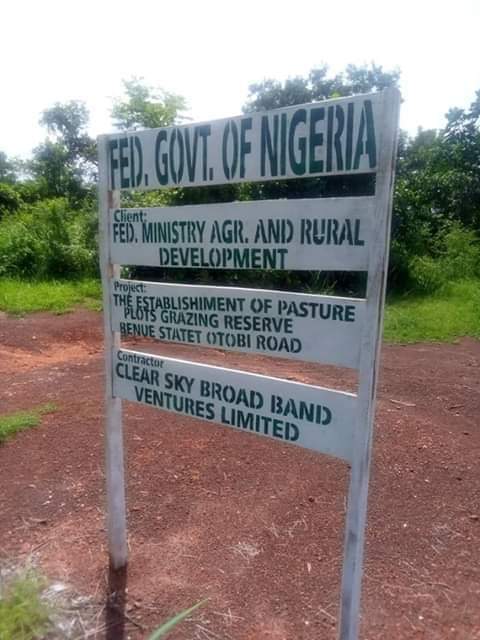
By: Abrahams Kwaghngu
The evolution of human progress overtime has never been without some initial setbacks, resistance to new ideas, suspicion and even at times people rightly or wrongly rejecting developmental ideas advanced by leaders. The Benue State Prohibition of Open Grazing and Ranches Establishment Law 2017 is an idea that emanated from the people of the State as a tested and globally accepted practice for animal husbandry.
This law has since enthroned some measure of peace and stability as against the recent past where cattle were allowed to brazenly encroach into farmlands with the attendant destruction of crops, property and in some cases avoidable loss of lives.
The recently proposed ‘Ruga Settlement’ system advanced by the Federal Ministry of Agriculture came to the people of the State as a shock. This is understandable against the backdrop of the existing Anti-Open Grazing Law widely hailed by forward thinking people as the panacea to the perennial farmers/herders conflict. The proposal to establish Ruga settlements in three Local Government Areas of Tarka, Otukpo and Ukum in Benue should have taken into consideration the Land Use Act embedded in the Nigerian Constitution which empowers the Governor of a State to administer land within the confines of his state to the benefit of his people and other stakeholders.
The Anti-Open Grazing Law in Benue has already adequately carter for the interests of farmers and cattle herders. This is because Benue as it is presently administered by Governor Samuel Ortom has made ample provision for all categories of business people, farmers, livestock farmers, traders, professionals and other artisans. However, developmental issues is a journey, not an end, as such Governor Ortom has consistently welcome any other alternative ideas as solution to the perennial farmers/herdsmen crisis for consideration. But so far, the ranching of livestock remains the best and widely accepted solution which represents a win-win approach for both herders and indigenous farmers.
For any public policy to be successful there is need for sustained consultations and engagement with the people and other stakeholders, public enlightenment, environmental impact assessment of the proposed policy, the impact of such policy on the socio-cultural and economic lifestyle of the people amongst others. Furthermore, the traditional establishment of a State needs to be properly carried along in any proposed public policy before implementation as they maintain a close relationship with their subjects and understands their needs and challenges. This process was successfully exhausted by the Governor Samuel Ortom led administration before the signing into Law of the Prohibition of Open Grazing and Ranches Establishment Law 2017. It remains to be seen or objectively analysed by political observers, public affairs commentators, critical stakeholders whether this process has been exhausted before the people woke up to the news of the establishment of Ruga Settlement which some have interpreted as Fulani Settlements.
Every ethnic group in Nigeria deserve a sense of belonging and access to the natural resources God in His wisdom deposited in their ancestral lands. But the exploitation of these natural resources should be done without encroaching or violating the way of life of a people of a given area. The discovery of crude oil in the Niger-Delta region and subsequent drilling of same has not come without some acrimony, distrust, cries of environmental degradation and all that. But thanks to the sustained peace initiatives of concerned interest groups, there is a prevailing peace in the region which should be sustained for the overall benefit of the country and its people.
So far, ranching of livestock remains the best way forward. This was confirmed in the recent past by the National Economic Council, NEC and Northern Governors’ Forum amongst other interest groups. The case for the revival of cattle routes is no longer practicable as population growth and physical development of infrastructure has made that impossible. Schools, hospitals, railroads, government offices, amongst others are a case in point. Likewise, the idea of ‘Cattle Colony’ to some is a reminder of the colonial era where the European powers were engaged in the infamous ‘Scramble for Africa’. The increasing population and development of infrastructure cannot support any form of open grazing of livestock, establishment of grazing reserves or setting up a cattle colony. Cattle ranching remains the most workable solution.
Rice, a staple for Christmas celebrations in Nigeria, has become a luxury this year. Soaring…
Panic erupted on Saturday at a concert in Lagos when the stage collapsed during Odumodublvck’s…
The Federal Government of Nigeria has allocated ₦6,364,181,224 billion for the refurbishment and rehabilitation of…
The black market dollar to naira exchange rate for today, 22nd December 2024, can be…
The Nigerian National Petroleum Company Limited (NNPCL) has refuted claims that the 60,000 barrels per…
Manchester City finds itself in unprecedented turmoil, with relegation-level form showing little sign of improvement.…